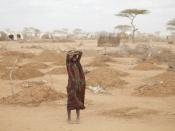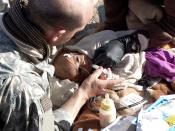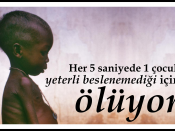First off, before making important notes about the video, I would like to comment that for me the videos really help add to the class. It helps bring to life all of the readings.
There were several things I noticed in the video Dadi's Family that related well to the readings that we have been using in class. I will proceed to show three of these relations that were the most intriguing to me.
In Robbie E. Davis-Floyd's article entitled "Gender and Ritual- Giving Birth the American Way," one of the first things he/she (I wasn't sure) states was that, "the way a society treats pregnancy and childbirth reveals a great deal about the way that society treats women." (Davis-Floyd 403) I thought this was significant in relation to the movie because Dadi mentioned several things about having Children in the film. She said something to the effect that when it is a boy they celebrate and when it is a girl there is no celebration.
For Dadi's family having a male child is like to have a child forever, without sharing them later. All of the males stay and pool the income, but women do not, they must go and be married. I found it sad that the birth of a daughter is not exciting. But Davis-Floyd's analysis seems correct in this situation. Depending on the number of sons that one has the more wealth they will have. There is security in having boys, but then at the same time, I noticed at points, the women sang and talked of the wonders of being a daughter. It also was different from what you would expect in that even though the birth of a daughter was not celebrated, the oldest or first daughter in law has power.
On page 419 the text reads, "Women were another source of pressure. Although most wanted few children themselves, they felt that other women were obligated by the needs of the collectivity to bear many children." In "Dadi's family" Dadi said talked of having children as if it was what she had to do, as if it was her only choice. "What else would I have done," she said as if not having children was absolutely something horrible. I wonder for her how different it would have been if she had been unable to have children, or if she had never had any boys.
After reading about the prevalence of 2nd and third degree malnutrition in Ludhiana, the Punjab, I was bothered extremely and while there was no mention of such malnutrition in the movie, I wonder if the system of having a daughter in law being the leader in a society that celebrates male babies, not female babies is more effective at preventing this malnutrition. It would seem to me that it would be more effective because while the boys are a source of wealth in Dadi's Culture, the Female are a source in family leadership thus in some ways giving both genders very important and necessary functions. If the female were not considered to be the leader, I wonder if there would be a higher level of malnutrition in Dadi's people.





